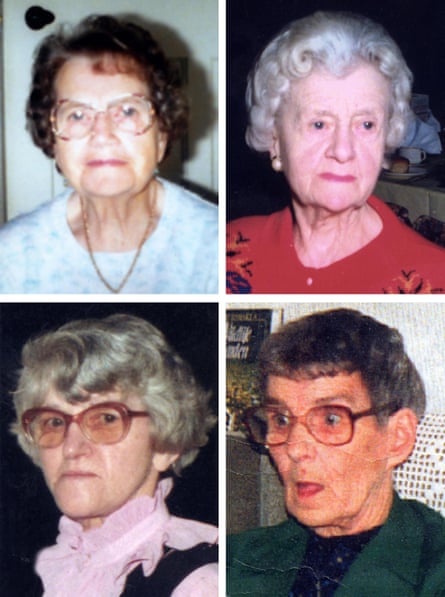A nurse convicted of murdering four patients and trying to kill a fifth will not be allowed to appeal to the supreme court, judges have ruled.
Colin Campbell, 49, was jailed for life in 2008 for killing Doris Ludlam, Bridget Bourke, Irene Crookes and Ethel Hall on orthopaedic wards in hospitals in Leeds.
The case relied on circumstantial evidence that before they died the women suffered severe and unexplained hypoglycemia, a condition normally found in people with diabetes when their blood sugar drops dangerously low.
Campbell’s trial was told he was on the scene at the time of each incident, or in the immediate aftermath, and it was suggested he had injected the patients. All were between the ages of 79 and 88.
Unexplained hypoglycemia was thought to be extremely rare at the time of Campbell’s conviction but his lawyers argued it was now known to be more common, making the conviction unsafe.

Campbell, who was previously known as Colin Norris, has always denied any wrongdoing and his case attracted attention because of its similarities to that of Lucy Letby, a nurse serving a life sentence for the murders of seven babies.
However, three court of appeal judges – Lady Justice Macur, Sir Stephen Irwin and Mr Justice Picken – rejected Campbell’s application to take his case to the supreme court.
Tuesday’s decision follows a 14-day hearing in June when the judges dismissed his appeal. It had been referred by the Criminal Cases Review Commission, which took on the case in 2011 after an unsuccessful appeal two years earlier.
The CCRC, an independent body which investigates potential miscarriages of justice, said there was “very little evidence” pointing to Campbell’s guilt, except that “it could be argued that, taken together, the cluster of cases pointed towards his involvement”.
after newsletter promotion
Michael Mansfield KC, acting for Campbell, highlighted four other cases of “sudden and profound” hypoglycemia after the nurse was removed from his job. Campbell’s lawyers argued that new medical knowledge meant the convictions were unsafe while lawyers for the Crown Prosecution Service said much of the same evidence presented was heard by the jury at the original trial, where 20 experts gave evidence.
The decision to block an application to the supreme court ends a series of unsuccessful appeals since Campbell was convicted during his five-month trial at Newcastle crown court in 2008. He was sentenced to life with a minimum term of 30 years.

 3 months ago
97
3 months ago
97

















































